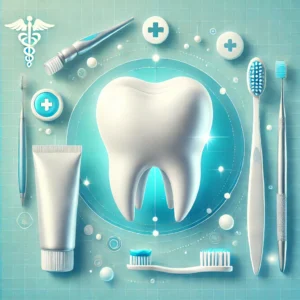Building muscle is a goal for many people who want to improve their fitness, strength, and overall health. This guide will help you understand the science behind muscle growth and provide practical tips for achieving your muscle-building goals.
Understanding Muscle Growth
Muscle growth, also known as hypertrophy, happens when you put stress on your muscles through exercise. This stress causes tiny tears in the muscle fibers. When your body repairs these tears, your muscles get bigger and stronger.
The Three Key Factors
- Mechanical Tension: This is the force you put on your muscles during exercises like lifting weights. The heavier the weight, the more tension on your muscles.
- Muscle Damage: This happens when you exercise hard enough to create small tears in your muscle fibers. This damage is necessary for growth.
- Metabolic Stress: This is the burning feeling you get in your muscles during intense exercise. It happens when your muscles run out of oxygen and start producing lactic acid.
Advanced Training Techniques
To maximize muscle growth, you can use some advanced training techniques:
Supersets
Perform two exercises back-to-back without resting in between. This increases the intensity and volume of your workout.
Drop Sets
After reaching muscle failure with a certain weight, reduce the weight and continue doing more reps. This helps to push your muscles beyond their usual limits.
Eccentric Loading
Focus on the lowering phase of an exercise. For example, take longer to lower the weight than to lift it. This creates more muscle damage and promotes growth.
FST-7
Perform seven sets of an exercise with minimal rest between sets. This technique increases blood flow to the muscles, stretching the muscle fascia and promoting growth.
Nutritional Timing
What you eat and when you eat it is crucial for muscle growth. Consuming protein and carbohydrates shortly after your workout can help with recovery and muscle building.
Post-Workout Nutrition
- Protein: Aim to consume about 20-30 grams of protein within 30 minutes after your workout. Whey protein is a good choice because it is quickly absorbed by your body.
- Carbohydrates: Eating carbs after your workout helps replenish your energy stores and supports muscle recovery.
Recovery Strategies
Recovery is just as important as your workouts. Without proper recovery, your muscles can’t grow.
Tips for Recovery
- Rest: Make sure to get enough sleep and rest between workouts.
- Nutrition: Eat a balanced diet with enough protein, carbohydrates, and healthy fats.
- Active Recovery: Engage in light activities like walking or stretching on your rest days to keep your muscles loose.
- Foam Rolling and Massages: These can help relieve muscle soreness and improve blood flow.
Mental Health Benefits
Building muscle doesn’t just benefit your body; it can also improve your mental health. Regular exercise can reduce symptoms of depression and anxiety, boost your mood, and increase your confidence.
Motivation and Consistency Tips
Staying motivated and consistent is key to muscle building.
Tips for Staying Motivated
- Set Achievable Goals: Start with small, realistic goals and gradually increase them.
- Keep a Training Log: Track your workouts, progress, and nutrition.
- Review and Adjust: Regularly review your progress and make necessary adjustments to your routine.
Periodization and Adaptation
Periodization involves changing your workout routine regularly to avoid plateaus and promote continuous progress.
How to Adapt Your Routine
- Change Exercises: Introduce new exercises every few weeks.
- Adjust Intensity: Vary the weights and number of reps.
- Incorporate Rest Periods: Include light training weeks to give your body a break.
Hormonal Impact
Hormones like testosterone and growth hormone play a big role in muscle growth. Resistance training can boost these hormone levels.
Tips to Boost Hormones
- Diet: Eat enough healthy fats and protein.
- Exercise Intensity: Engage in high-intensity workouts.
Common Challenges and Solutions
Building muscle comes with challenges. Here are some common issues and how to overcome them:
Plateaus
- Solution: Change your workout routine, increase the weight, or try advanced training techniques.
Overtraining
- Solution: Ensure you have enough rest and recovery time.
Poor Nutrition
- Solution: Follow a balanced diet and consider consulting a nutritionist.
FAQs
What is the best protein for muscle growth?
Whey protein is a popular choice because it is quickly absorbed by the body.
How often should I train?
Aim to train each muscle group at least twice a week.
Can I build muscle without weights?
Yes, bodyweight exercises can also help build muscle, but weights are more effective for significant growth.
Conclusion
Building muscle takes time, effort, and the right knowledge. By understanding the science behind muscle growth and incorporating advanced techniques, proper nutrition, and recovery strategies, you can achieve your muscle-building goals. Stay motivated, be consistent, and remember that progress takes time.





















+ There are no comments
Add yours